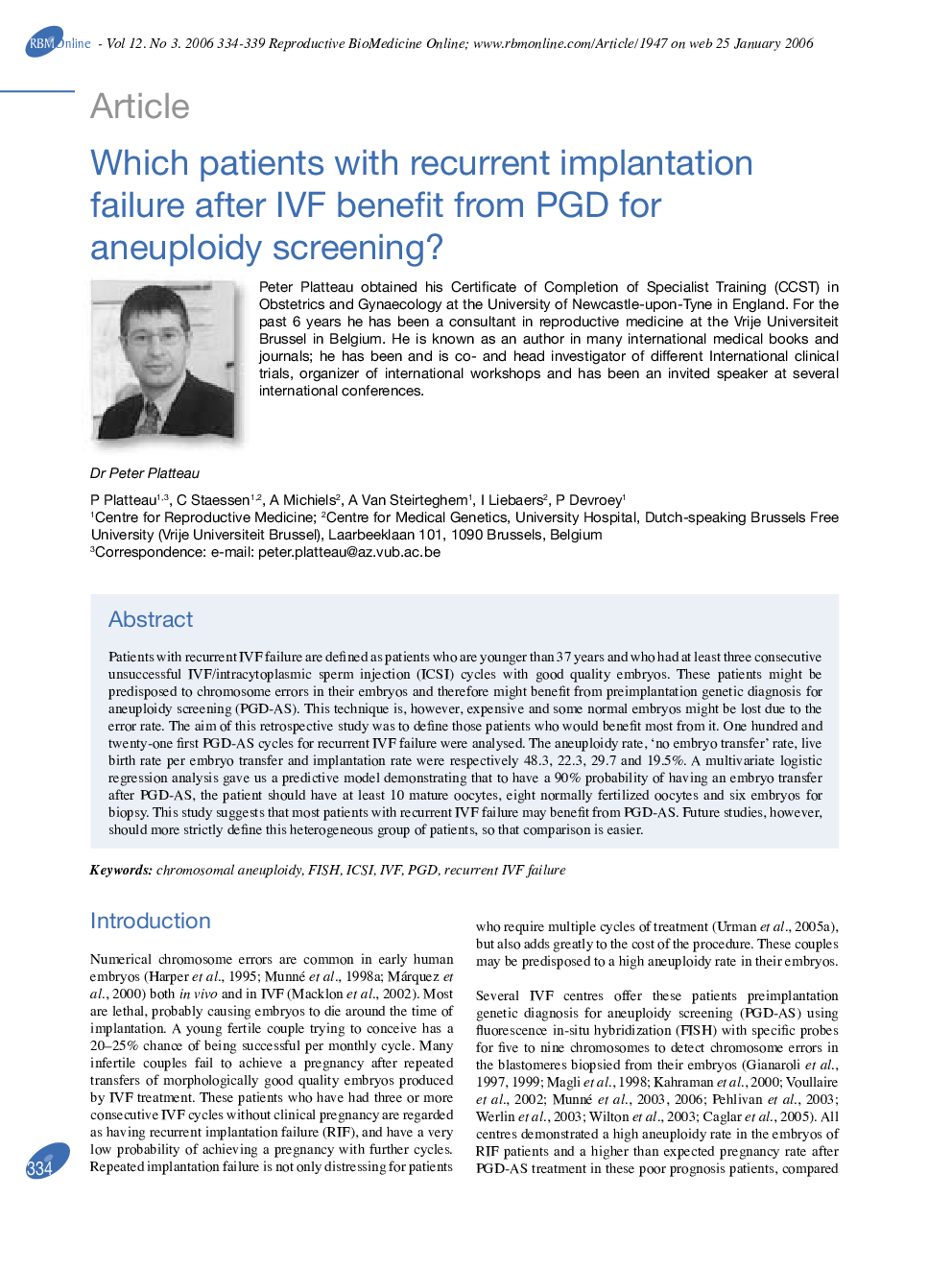| Article ID | Journal | Published Year | Pages | File Type |
|---|---|---|---|---|
| 3973564 | Reproductive BioMedicine Online | 2006 | 6 Pages |
Patients with recurrent IVF failure are defined as patients who are younger than 37 years and who had at least three consecutive unsuccessful IVF/intracytoplasmic sperm injection (ICSI) cycles with good quality embryos. These patients might be predisposed to chromosome errors in their embryos and therefore might benefit from preimplantation genetic diagnosis for aneuploidy screening (PGD-AS). This technique is, however, expensive and some normal embryos might be lost due to the error rate. The aim of this retrospective study was to define those patients who would benefit most from it. One hundred and twenty-one first PGD-AS cycles for recurrent IVF failure were analysed. The aneuploidy rate, ‘no embryo transfer’ rate, live birth rate per embryo transfer and implantation rate were respectively 48.3, 22.3, 29.7 and 19.5%. A multivariate logistic regression analysis gave us a predictive model demonstrating that to have a 90% probability of having an embryo transfer after PGD-AS, the patient should have at least 10 mature oocytes, eight normally fertilized oocytes and six embryos for biopsy. This study suggests that most patients with recurrent IVF failure may benefit from PGD-AS. Future studies, however, should more strictly define this heterogeneous group of patients, so that comparison is easier.
